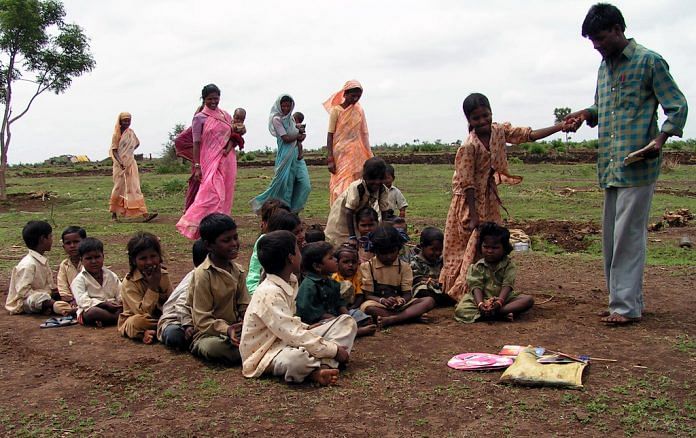Belonging to the Nomadic and Denotified Tribes, these Indians were considered born criminals under the Criminal Tribes Act, 1871 up until this day in 1952.
New Delhi: Nearly 13 crore people in India are celebrating their ‘independence day’ Friday. Belonging to the Nomadic and Denotified Tribes (NT-DNTs) social group, these people were considered to be born criminals under the colonial Criminal Tribes Act, 1871 up until this day in 1952.
The Criminal Tribes Act, 1871, was repealed on 31 August 1952, resulting in former criminal tribes being ‘denotified’ of this tag.
Also read: How a WhatsApp rumour destroyed the status of a 500-year-old nomadic tribe in Maharashtra
However, critics say while the legislative victory was an important one, the law that immediately replaced the Criminal Tribes Act, namely the Habitual Offenders Act 1952 of the Government of India, has done little to reduce the marginalisation faced by these nomadic communities.
Born criminals
Passed by the Governor General of India under British rule in 1871, members of nomadic communities were automatically classified as having a criminal occupation by virtue of their very existence under the Criminal Tribes Act – an Act for the registration of ‘Criminal Tribes and Eunuchs’.
This piece of legislation set a precedent that any local government could classify any tribe as ‘criminal’ if it felt “the tribe, gang or class of persons is addicted to the systematic commission of non-bailable offences.”
The burden of proving a legitimate occupation fell upon the member of the tribe as criminal intent was presupposed. For years, this law gave authorities the power to harass, intimidate, segregate, imprison and restrict the movement of tribes which lacked permanent settlements.
More of the same
On 9 March, 2007, the UN Committee on the Elimination of Racial Discrimination (CERD) issued a concluding observation in which it said, “The so-called denotified and nomadic which are listed for their alleged ‘criminal tendencies’ under the former Criminal Tribes Act (1871), continue to be stigmatized under the Habitual Offenders Act (1852).”
A report by The Resist Initiative International, a south Asian human rights and democracy organisation, in February of that year, said the listing of denotified nomadic tribes under the Habitual Offenders Act continues to “negate the universally proclaimed principle that” all human beings are born free and equal.
The report further said India’s National Human Rights Commission (NHRC) had previously devised a special panel in 1998 to look into the condition and treatment of the country’s tribal people. Subsequently, the panel’s report in 2000 recommended that the Habitual Offenders Act be repealed.
Also read: ‘Blood on the bedsheet a must’: How this Indian tribe keeps horrific virginity test alive
However, as of January 2018, the Ministry of Social Justice and Empowerment (MoSJE) was still promising that “the government will definitely act in this regard.”
A campaign to bring NT-DNTs under the ambit of the Prevention of Atrocities Act is currently underway, with the MoSJE considering constituting a separate third identity category alongside Scheduled Castes and Scheduled Tribes.
According to personal accounts of former researchers, the National Commission for Denotified, Nomadic and semi-nomadic Tribes (NCDNT), set up in January 2015 under the MoSJE, has also achieved little of substance since inception.



